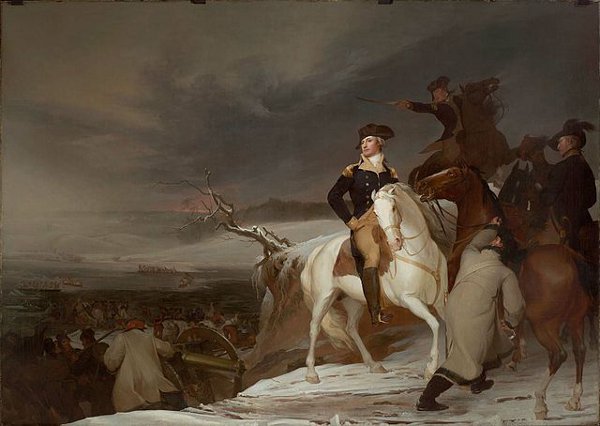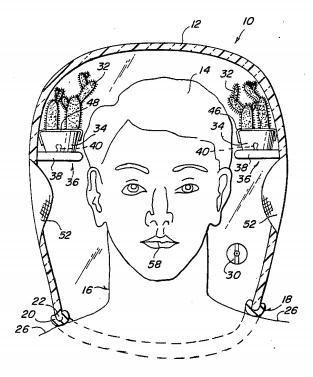
When the Rose & Crown signboard blew down
George the landlord remarked with a frown,
“On the one to replace it
We’ll have much more space be-
Tween Rose and & and & and Crown.”
— Leigh Mercer

When the Rose & Crown signboard blew down
George the landlord remarked with a frown,
“On the one to replace it
We’ll have much more space be-
Tween Rose and & and & and Crown.”
— Leigh Mercer

David Garrick revolutionized the 18th-century stage with a naturalistic style of acting that replaced the self-conscious theatricality of the earlier tradition. Audiences flocked to see his productions, forsaking earlier favorites such as James Quin, who admitted, “If this young fellow be right, then we have been all wrong.”
Garrick died in 1779, so we have no recordings of his performances. But we do have this:

That’s Garrick’s line reading preserved in the “prosodia rationalis,” a system for recording linguistic prosody using a music-like notation. Its creator, Joshua Steele, had attended a Garrick performance in order to compare his own rendering of Hamlet with that of the acclaimed actor. He found that “that speech, or soliloque, which I (for want of better judgement) have noted in the stile of a ranting actor, swelled with forte and softened with piano, he delivered with little or no distinction of piano and forte, but nearly uniform; something below the ordinary force, or, as a musician would say, sotto voce, or sempre poco piano.”
Steele gives a few other fragments of Garrick’s performance, but “I shall forbear to give any more specimens of that great actor’s elocution, from the memory of once hearing, lest I should do him injustice, as my intention here is not to play the critic; but merely to shew, that by means of these characters, all the varieties of enunciation may be committed to paper, and read off as easily as the air of a song tune.”
Related (sort of): The Parrot of Atures.
I think this first appeared in the puzzle newsletter The Ag Mine — 12 chemical elements can be spelled using element symbols:
ArSeNiC
AsTaTiNe
BiSmUTh
CArBON
CoPPEr
IrON
KrYPtON
NeON
PHOsPHORuS
SiLiCoN
TiN
XeNoN
See Transmutation.

George Washington retired as a lieutenant general and so was technically outranked by the four- and five-star generals of later wars.
Thinking this unseemly, Congress passed a resolution in 1976 arranging that Washington be promoted posthumously to “General of the Armies of the United States” and that no officer in the U.S. Army ever be considered to outrank him:
Whereas Lieutenant General George Washington of Virginia commanded our armies throughout and to the successful termination of our Revolutionary War; Whereas Lieutenant General George Washington presided over the convention that formulated our Constitution; Whereas Lieutenant General George Washington twice served as President of the United States of America; and Whereas it is considered fitting and proper that no officer of the United States Army should outrank Lieutenant General George Washington on the Army list; Now, therefore, be it
Resolved by the Senate and House of Representatives of the United States of America in Congress assembled, That
(a) for purposes of subsection (b) of this section only, the grade of General of the Armies of the United States is established, such grade to have rank and precedence over all other grades of the Army, past or present.
(b) The President is authorized and requested to appoint George Washington posthumously to the grade of General of the Armies of the United States, such appointment to take effect on July 4, 1976.
Gerald Ford signed the executive order that October.
carfax
n. a place where four roads meet
Traveling between country towns, you arrive at a lonely crossroads where some mischief-maker has uprooted the signpost and left it lying by the side of the road.
Without help, how can you choose the right road and continue your journey?
Argentine artist Leandro Erlich calls himself an “architect of the uncertain,” drawing equally from his countryman Jorge Luis Borges and from filmmakers such as Luis Buñuel and David Lynch, who he says “have used the everyday as a stage for creating a fictional world obtained through the psychological subversion of everyday spaces.”
The apparently gravity-defying Victorian property above is actually a large mirror suspended at a 45° angle over a facade set into the ground, which visitors are free to climb on. It’s appearing this month on a street in Dalston, East London.
The same participatory spirit informs Erlich’s installation Swimming Pool, below, which appeared at New York’s P.S. 1 Contemporary Art Center in 2008. The lower room is covered with a sheet of acrylic and a thin veil of water.
“Games and play are something that children do in order to learn the world,” Erlich says. “I do think [playing] is a positive way to trigger the process of thinking.”
Harold came rushing out of the engine room with dishevelled hair and bulging eyes. We asked him what on earth was the matter. For an answer he pointed to a piece of rope that was caught in a part of the farthest end of a long beam, which extended far over the side of the Seairoplane. Then he said, ‘Unless that rope is gotten out of the curobater we will all be killed.’ These awful words astounded us and we all became frightened at once. Suddenly amid all of our lamentations a cry from Harold was heard and we all looked up. What was our surprise to see James Thurber walking out on the beam. He reached the end safely and then extricated the rope, but when he turned to come back his foot caught and he pitched head foremost towards the deck. His unusual length saved him for he landed safely on the Seairoplane. We were all very joyful that the terrible crisis had been safely passed and afterwards learned that James was a tightrope walker with Barnsells and Ringbaileys circus.
— From an eighth-grade “class prophecy” essay by 14-year-old James Thurber, 1909

Patented in 1986, Waldemar Anguita’s “greenhouse helmet” is lined with live plants to provide oxygen for its wearer:
Plants, each within a pot, are placed within the dome. The carbon dioxide of the ambient air will mix with carbon dioxide breathed out by the person to be used by the plants to produce oxygen to be breathed in by the person.
Strangely, Anguita never explains why a person might want to do this.

From Sir Edward Victor Appleton’s speech at the 1947 Nobel Banquet:
Ladies and gentlemen, you should not … overrate scientific methods, as you will learn from the story of a man who started an investigation to find out why people get drunk. I believe this tale might interest you here in Sweden. This man offered some of his friends one evening a drink consisting of a certain amount of whisky and a certain amount of soda water and in due course observed the results. The next evening he gave the same friends another drink, of brandy and soda water in the same proportion as the previous night. And so it went on for two more days, but with rum and soda water, and gin and soda water. The results were always the same.
He then applied scientific methods, used his sense of logic and drew the only possible conclusion — that the cause of the intoxication must have been the common substance: namely the soda water!
That’s from Ronald Clark, Sir Edward Appleton, 1971. Clark adds, “Appleton was pleased but a little surprised at the huge success of the story. Only later did he learn that the Crown Prince drank only soda water — ‘one of those unexpected bonuses which even the undeserving get from Providence from time to time,’ as he put it.”